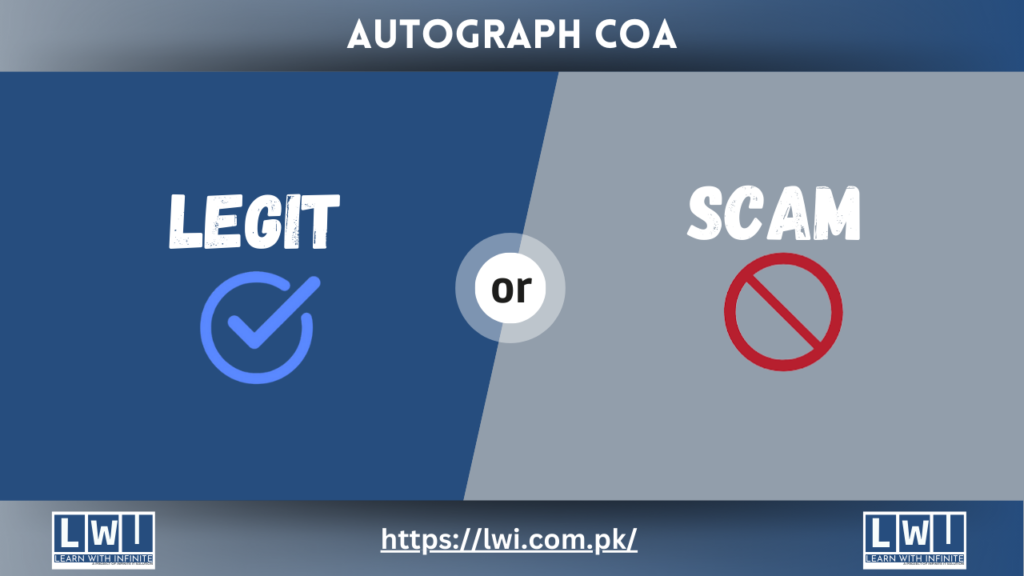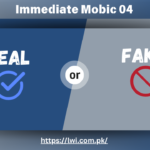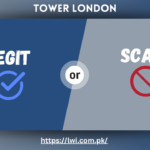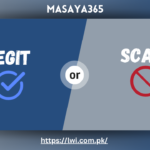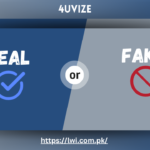AutoGraph COA is a scam platform that falsely claims to provide autograph authentication services. It lacks transparency about its authentication process, has no verified reviews, and issues Certificates of Authenticity (CoAs) without proper verification methods. These red flags, along with unreliable social media advertising, make it a risky choice for collectors.
This article will delve into the reasons behind its questionable legitimacy and offer advice on how to avoid falling victim to such scams.
What is AutoGraph COA?
AutoGraph COA, founded in 2017 by Justin Steffman, is a company claiming to provide autograph authentication services, aiming to cater to collectors in the entertainment, music, and political sectors. They boast that they have authenticated over 1,000,000 autographs through a team of experienced consultants with diverse backgrounds, offering services for verifying autographs from well-known figures.
Despite the company’s strong reputation in the industry, there are concerns about its credibility compared to established authentication companies like PSA/DNA, JSA, and Beckett. While AutoGraph COA claims to offer a transparent process, the reliability of their verification and the authenticity of their work has been questioned by potential buyers, making some wonder if the company can truly offer the same level of service and expertise as its competitors.
As the company continues to operate in an industry where expert opinions are crucial, its background story and details remain unknown to some, raising questions about its legitimacy and the quality of the verification provided to customers.
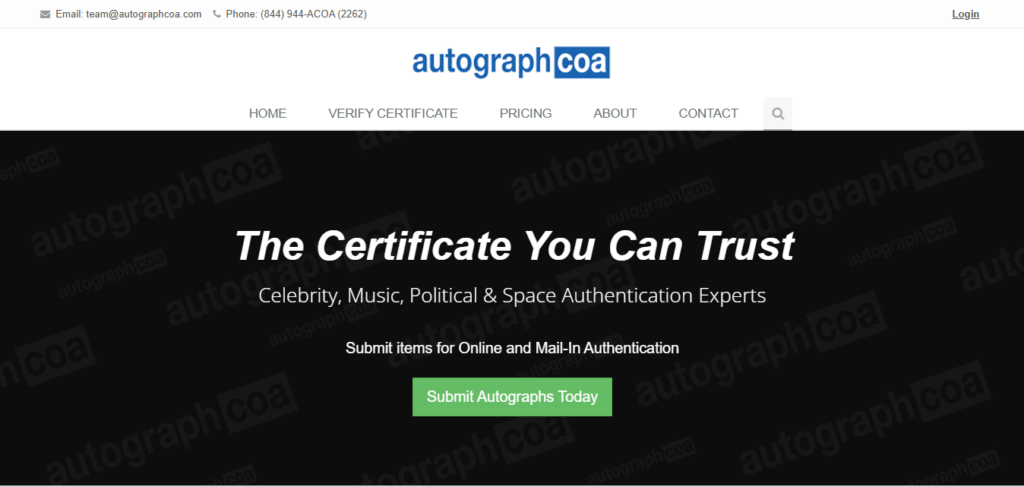
Red Flags in AutoGraph COA:
Lack of Transparency:
One of the major red flags with AutoGraph COA is the lack of transparency surrounding their authentication process. While the company claims to have a team of experts who provide services for autographed items, the website and available materials do not offer sufficient details about their team’s backgrounds or the procedure they follow for examining signatures.
Unlike more respected companies like PSA/DNA, which have well-known authenticators and clear vetting processes, AutoGraph COA has been criticized for leaving doubt about the authenticity of their CoA issuances.
The anonymity of their team and the absence of verifiable information raise concerns about whether signatures are being properly examined and if the provenance and condition of collectibles are accurately assessed.
This opacity leads to questions about whether buyers are receiving authentic signatures or if the company is just issuing CoA certificates without the careful handling that valuable collectibles demand.
Absence of Reviews:
The absence of reviews is a major red flag for AutoGraph COA, especially when it comes to gauging its legitimacy and reliability. Reviews from verified customers are essential for understanding the quality of services offered by any business, but AutoGraph COA has few mentions across trusted platforms like TrustPilot, Sitejabber, and ResellerRatings.
With limited public feedback, it’s challenging for potential buyers to determine the authenticity of the autograph authentication process they offer. The absence of substantial customer testimonials raises serious concerns, as it could indicate either suppressing of negative opinions or an unusual lack of a real customer base.
Without substantial feedback, it becomes difficult to verify the quality of their CoA or confirm if their authentication process aligns with industry standards like PSA/DNA. This lack of visibility leaves buyers wondering whether the service is truly legitimate or just a deceptive attempt to gain credibility without proper support or experience.
The Issue with CoAs:
The Certificate of Authenticity (CoA) is a key document meant to verify the authenticity of autographed items, but when it comes to AutoGraph COA, its credibility can be questioned. While a CoA is supposed to provide a reliable authentication of an autograph’s genuine nature, the proliferation of fake or counterfeit certificates in the market has made such documents less trustworthy.
Without a trusted and reliable company backing the CoA, like PSA/DNA, JSA, or Beckett, which have decades of experience and rigorous processes, any certificate becomes meaningless. The lack of a proper authentication mechanism or serial numbers to verify the item’s authenticity raises concerns, especially if AutoGraph COA fails to provide verifiable details.
This failure to offer a cross-check or tracking mechanism further suggests that their service may not meet the standards of established companies in the industry, making it difficult for collectors and auction houses to trust the CoA they provide.
Social Media Advertising:
The social media advertising by AutoGraph COA raises concerns due to the lack of organic presence and an over-reliance on paid ads, which may give a false sense of legitimacy. In contrast to legitimate businesses that build their reputation through positive word-of-mouth, referrals, and credible customer feedback, the absence of consistent, genuine reviews or interactions makes it harder to trust.
With search engines often flooded with advertisements, it becomes easy for companies to manipulate perceptions, raising suspicions about the authenticity of their services.
AutoGraph COA’s spending on ads without solid, trusted endorsements or a history of positive customer experiences can undermine its credibility, leaving potential buyers to question the true value of their authentication offerings in the autograph industry.
The Process of Authentication:
The authentication process for AutoGraph COA raises doubts due to the lack of transparency regarding the steps taken to verify signatures. Unlike established services like PSA/DNA, which follow a rigorous and multi-step process involving physical inspection, UV light analysis, and advanced anti-counterfeiting methods to ensure genuine autographs, AutoGraph COA provides no clear evidence of similar checks being performed.
There are no comprehensive materials or documentation available on their website, making it impossible to trust the CoA issued. With no publicly available certified exemplars or a transparent procedure to confirm the authenticity of signed items, it becomes difficult for potential buyers to rely on their service without knowing if the signature has been properly examined or if the forgery risks have been fully addressed.
How to Avoid Getting Scammed in the Autograph Market
If you are a collector looking to purchase authentic autographs, it’s essential to avoid getting scammed by platforms like AutoGraph COA. Here are some steps you can take to protect yourself:
Research the Company:
Before purchasing an autograph, it is crucial to research the company offering the CoA. Look for customer feedback and reviews from previous buyers to ensure the legitimacy of their services. Check for any independent verification or background information that confirms the company’s authenticity in the autograph market.
The more reviews and positive feedback from trusted sources you find, the easier it is to assess whether the company can be trusted to provide genuine items with a legitimate certificate of authenticity. Avoid companies that lack verifiable information or have questionable reviews, as these may indicate potential risks.
Stick to Trusted Companies:
To protect yourself in the autograph market, always stick to trusted and well-established companies that have a long history of providing reliable authentication services. Renowned organizations such as PSA/DNA, JSA, and Beckett have earned their reputation over the years for accurately verifying autographs.
These companies offer the peace of mind that comes from knowing the autographs have been thoroughly checked and verified. Relying on trusted names in the industry ensures you are purchasing from professionals committed to maintaining the integrity of autograph collections.
Verify the CoA:
When purchasing autographed items, it’s essential to verify the CoA (Certificate of Authenticity) to ensure its legitimacy. A trustworthy company will always provide a serial number or tracking code linked to the CoA that allows you to authenticate the autograph’s authenticity.
Always check the details of the CoA online, as this process helps you avoid purchasing worthless items. By doing so, you ensure the item you’re buying is truly authentic and not a counterfeit.
Check the Seller’s Reputation:
Before deciding to buy from a seller, always check their reputation to ensure they are reputable. Sellers with a proven track record of selling authentic memorabilia are more likely to provide you with the adequate proof of authenticity.
Avoid purchasing from unfamiliar sources, as they may fail to provide sufficient documentation or could be involved in selling counterfeit items. Prioritize sellers who are known for their reliability in the market.
Be Skeptical of Unrealistically Low Prices:
When shopping for autographed items, be skeptical of unrealistically low prices. Authentic autographs from famous individuals are usually valuable and rarely sold for significantly low prices.
If a price seems too good to be true, it likely is—these bargains are often a red flag for counterfeit or fake autographed items. Always be cautious and do thorough research before making such purchases.
Conclusion: Why AutoGraph COA is a Scam Platform?
In conclusion, AutoGraph COA presents itself as a provider of autograph authentication services, but numerous red flags raise concerns about its legitimacy.
The company lacks transparency regarding its authentication process, has minimal customer reviews, and offers CoAs without the robust verification systems that industry leaders like PSA/DNA and JSA provide.
Additionally, their reliance on social media advertising and the absence of verifiable information make it difficult to trust their services.
Collectors should be cautious and prioritize trusted, established companies with a proven track record to avoid the risk of counterfeit autographs and fraudulent certifications.
Check Similar Platform Review: Is True Accord Legit or Scam?
Frequently asked Questions
What is AutoGraph COA?
AutoGraph COA, founded in 2017 by Justin Steffman, claims to authenticate autographs across various industries. Despite its claim to have verified over a million autographs, concerns about its credibility exist due to lack of transparency and a questionable authentication process.
Is AutoGraph COA a legitimate company?
AutoGraph COA’s legitimacy is doubtful due to the absence of customer reviews, lack of detailed authentication processes, and no evidence of rigorous checks, which are standard for established companies like PSA/DNA and JSA.
Why is AutoGraph COA called a scam?
The company is referred to as a scam due to its unclear authentication methods, scarce customer feedback, and over-reliance on paid ads, raising suspicions about the authenticity of its CoAs.
Does AutoGraph COA have any reviews?
AutoGraph COA has minimal reviews on trusted platforms, making it hard for potential customers to assess its trustworthiness or the quality of its services.
What is the authentication process at AutoGraph COA?
AutoGraph COA provides no clear information about its authentication process, leaving doubts about how signatures are verified compared to standard methods used by industry leaders.
Can I trust the CoA from AutoGraph COA?
Due to a lack of transparency and verification methods, the CoAs issued by AutoGraph COA cannot be reliably trusted as authentic.
What are the risks of using AutoGraph COA?
The risks include receiving counterfeit autographs or invalid CoAs due to the company’s opaque process and lack of third-party verification.
How does AutoGraph COA compare to other companies?
Unlike reputable companies like PSA/DNA or JSA, AutoGraph COA lacks transparency and proven authentication methods, making it less reliable.
Why should I be cautious about prices from AutoGraph COA?
AutoGraph COA’s prices may seem unrealistically low, which could indicate the sale of counterfeit or forged autographs.

